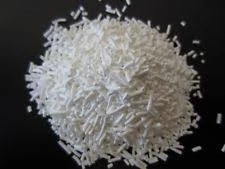
Understanding E201 Preservative and Its Benefits in Food Preservation Techniques
The Role of E201 Preservative in Food Safety
In the ever-evolving world of food preservation, the E201 preservative, known as sodium sorbate, stands out as a widely used ingredient. This preservative plays a crucial role in enhancing the shelf life of various food products while ensuring safety for consumers. Understanding the significance, application, and safety profile of E201 helps in appreciating its role in modern food technology.
What is E201?
E201, or sodium sorbate, is a chemical compound derived from sorbic acid, a natural preservative that occurs in some berries. Classified as a food additive, E201 is particularly effective in inhibiting the growth of mold, yeast, and certain bacteria. Given the increasing consumer demand for longer-lasting food products without compromising safety, E201 has found its place in numerous food items, from baked goods and dairy to beverages and processed meats.
Applications of E201
E201 is versatile and is commonly used across a range of food products. In bakery goods, it prevents mold formation, ensuring that bread, cakes, and pastries remain fresh for longer periods. In dairy products, such as cheese and yogurt, it helps to maintain quality and prevent spoilage. Additionally, E201 is utilized in the production of sauces, dressings, and beverages, where its antimicrobial properties are invaluable.
Moreover, E201 is not limited to the food industry; it also finds applications in cosmetics and personal care products as a preservative, showcasing its broad utility in different consumer goods. The functionality of E201 as a preservative helps manufacturers reduce food waste, benefiting both businesses and consumers.
Safety and Regulatory Status
e201 preservative

The safety of food additives is paramount, and E201 has undergone extensive evaluation by various regulatory bodies worldwide. Organizations such as the European Food Safety Authority (EFSA) and the U.S. Food and Drug Administration (FDA) have assessed sodium sorbate's safety and established acceptable daily intake levels. According to these assessments, E201 is considered safe for consumption when used within the recommended limits.
Despite its safety profile, some individuals may experience sensitivities or allergic reactions to E201. Thus, it is crucial for manufacturers to disclose its presence on food labels, allowing consumers to make informed choices. Public awareness about food additives has heightened in recent years, prompting consumers to scrutinize ingredient lists more closely.
The Importance of Preservatives
Preservatives, including E201, serve a vital function in the food supply chain. They are instrumental in preventing spoilage, extending shelf life, and maintaining food quality. In the context of global food distribution, these additives help mitigate food waste and ensure that products remain safe for consumption during transportation and storage.
Furthermore, the use of preservatives like E201 contributes to food security. By enhancing the durability of food products, these additives help meet the demands of a growing population while minimizing spoilage. As food technology advances, the role of preservatives will continue to be essential in ensuring a reliable and safe food supply.
Conclusion
E201, or sodium sorbate, is a prominent preservative that contributes significantly to food safety and preservation. Its effectiveness in preventing spoilage has made it a staple in the food industry, allowing manufacturers to offer longer-lasting products. While safety evaluations support its use, consumer awareness and labeling remain crucial in ensuring informed dietary choices. As we navigate the complexities of modern food production, understanding preservatives like E201 allows us to appreciate the intricate balance between food safety, preservation, and consumer health. As innovations in food technology progress, the role of E201 and similar additives will undoubtedly continue to evolve, shaping the future of food preservation.
-
Understanding Synthetic Rubber OptionsNewsApr.27,2025
-
Trichloroisocyanuric Acid: Essential for Clean and Safe WaterNewsApr.27,2025
-
Sodium Dichloroisocyanurate: Key to Safe Water TreatmentNewsApr.27,2025
-
Sodium Acid Pyrophosphate: Essential in Modern Food ProcessingNewsApr.27,2025
-
Essential Water Treatment ChemicalsNewsApr.27,2025
-
Denatured Alcohol and Its Industrial UsesNewsApr.27,2025
-
The Versatile Uses of Sodium BicarbonateNewsApr.24,2025
Hebei Tenger Chemical Technology Co., Ltd. focuses on the chemical industry and is committed to the export service of chemical raw materials.
-

view more DiethanolisopropanolamineIn the ever-growing field of chemical solutions, diethanolisopropanolamine (DEIPA) stands out as a versatile and important compound. Due to its unique chemical structure and properties, DEIPA is of interest to various industries including construction, personal care, and agriculture. -

view more TriisopropanolamineTriisopropanolamine (TIPA) alkanol amine substance, is a kind of alcohol amine compound with amino and alcohol hydroxyl, and because of its molecules contains both amino and hydroxyl. -

view more Tetramethyl Thiuram DisulfideTetramethyl thiuram disulfide, also known as TMTD, is a white to light-yellow powder with a distinct sulfur-like odor. It is soluble in organic solvents such as benzene, acetone, and ethyl acetate, making it highly versatile for use in different formulations. TMTD is known for its excellent vulcanization acceleration properties, which makes it a key ingredient in the production of rubber products. Additionally, it acts as an effective fungicide and bactericide, making it valuable in agricultural applications. Its high purity and stability ensure consistent performance, making it a preferred choice for manufacturers across various industries.











